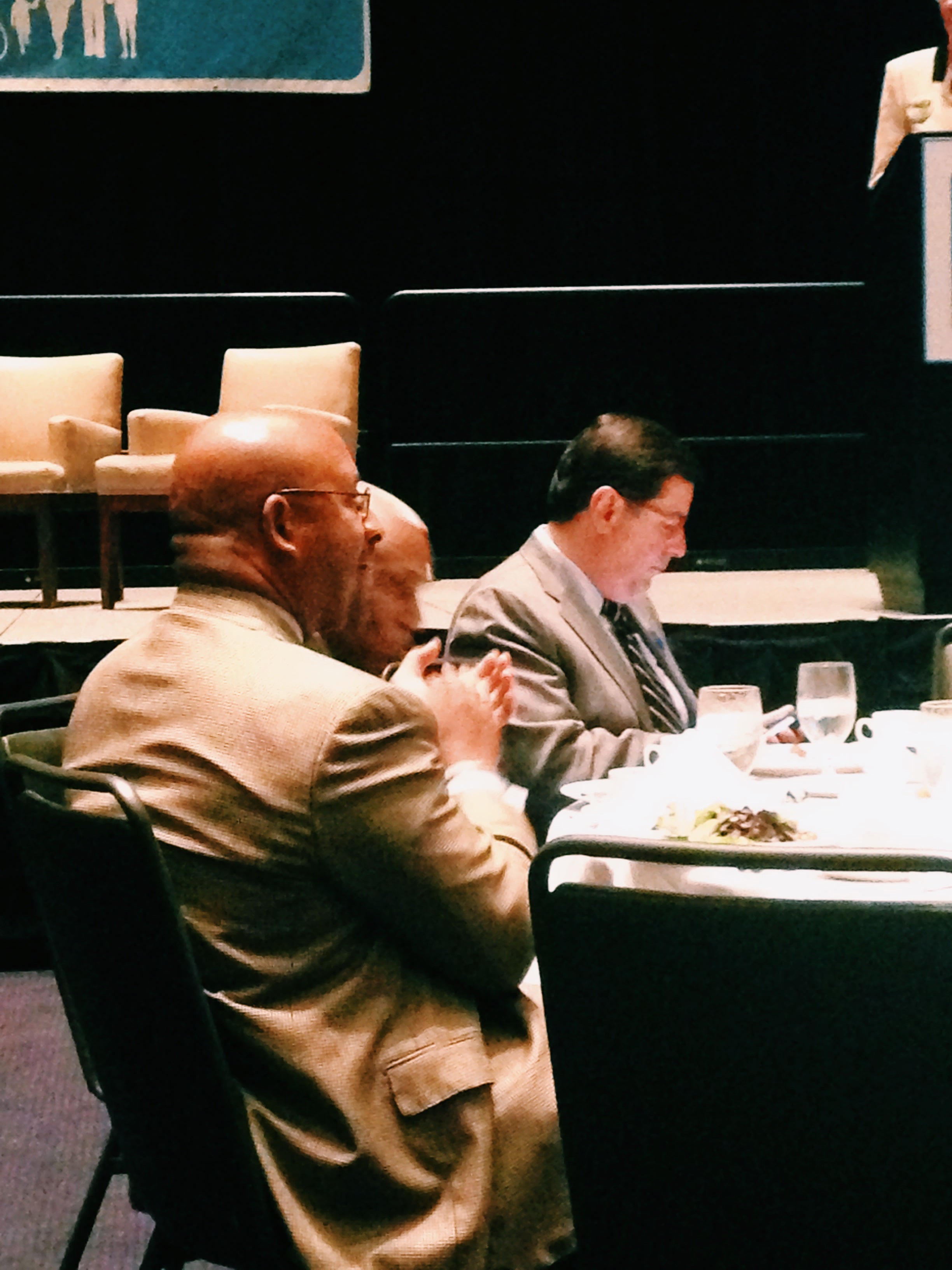Live-blog: Nutter and Peduto talk politics of livable streets in Philly and Pittsburgh

The Mayors of Pennsylvania’s two largest cities shared the stage on a lunch panel yesterday here at the Pro-Walk, Pro-Bike, Pro-Place conference in Pittsburgh, offering some thoughts on the nature of leadership, and how they think about the political trade-offs of reclaiming right-of-way for cyclists and pedestrians.
Pittsburgh Mayor Bill Peduto said he tries to tune out the hate mail and trust city planners, and expressed confidence that opposition to protected bike lanes would dissipate in Pittsburgh as it has elsewhere:
You’re sitting there at 10:30 at night, you’re reading your Twitter, and there are people just ripping you apart. The fact is that the trade-offs, at least in my own brain, aren’t about the infrastructure. It’s not about what is the best design for how that is done. I’ve got a great team. I’ve got folks that have dedicated their lives to learning and studying it and teaching it. The trade-off comes to how far can we push it before the people start going in the streets with the pitchforks and torches.
We decided we were going to do the green lanes project, and get these dedicated bike lanes up quickly. We knew there was going to be this pushback that was going to come but we wanted to show it, and let people see it, so we could continually, like a drumbeat, build it. And as I’ve listened to these other Mayors, I hear from them how that type of a reaction starts to dissipate and go down over time. That’s the type of trade-off that I think about, because I have to represent everybody, and I know what the right thing is, but I also know that pushback is going to come from people who don’t see it the same way.
And Philadelphia Mayor Michael Nutter took a shot at the idea that Philadelphia should ignore livable streets issues while there are other pressing problems to deal with. Rejecting the idea that these are second or third-tier issues, he argued that his administration’s land use and transportation initiatives have actually played an important role promoting economic recovery. Is he right? Philadelphia does have the third fastest growth rate in new contruction jobs nationally.
There are some fundamentals between what we do, and what politicians do at different levels of government. We are the chief executive officers of major corporations in the United States of America called a government. And we’re expected to make decisions, and we do every day. And right now, I can assure you that in Philadelphia, someone is complaining that it is too hot outside, and someone else is complaining that it’s not warm enough. Someone will always complain about each and every thing that you do. Have a vision, develop a plan, work a plan, implement a plan, and constantly communicate with people why you’re doing what you’re doing.
So try to imagine: I came into office in January 2008. The recession, we were told, finally, was in effect in September of 2008. It started in December of 2007. No one sent me that memo! And so we’re trying to make decisions about how to save money, how to provide services, stop tax reduction, increase taxes, cut services, cut programs, cut salaries, etc etc, – and then you want to have a conversation about bike lanes? Or recycling? Or a whole host of other touchy-feely kind of “wouldn’t it be wonderful?” things, where if everything else is perfect, let’s do these things.
Well we still did bike lanes, and we still tripled our recycling rate, and we’re going to have a bike share program, because government goes on. You have to be constantly looking into the future, not just about today, but what we’re trying to get done long-term. And so I would suggest, that many of the things that we did – bike lanes, bike share, recycling, sustainability, new plans for the city, are part of what drove the growth over the past few years, and actually helped us recover from the worst recession since the Great Depression.
This is a thick-skin kind of business. If you need someone to love you every day, you’re in the wrong business. You should go work at a pet shop.
WHYY is your source for fact-based, in-depth journalism and information. As a nonprofit organization, we rely on financial support from readers like you. Please give today.






